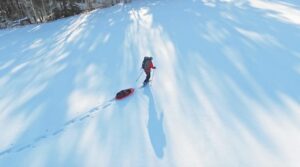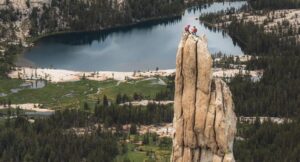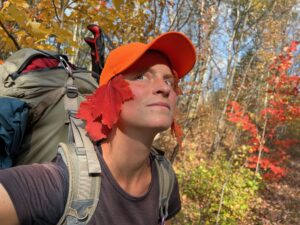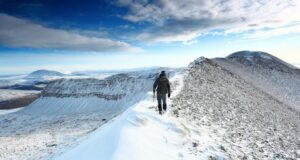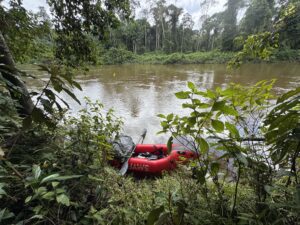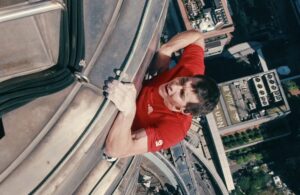“I wouldn’t say I’m an athlete,” says New Zealand’s Tara Mulvany. “I just like going on long adventures to remote places, and a kayak is a really good vessel for doing that.”
Mulvany, 31, grew up in southern New Zealand. At 11 years old, Mulvany climbed 3,000m Mt Aspiring with her father. (Both her parents were outdoorsy.) The following year, she summited Mt. Cook. At 3,700m, it is New Zealand’s tallest mountain and has claimed more than 200 lives.
Mulvany went on to study outdoor recreation and developed an interest in kayaking. She later worked as a sea kayak guide in New Zealand’s Milford and Doubtful Sounds and in northern Thailand. For a while, she knocked about South America and the Himalaya. Between adventures, she returned to guide in the Fiordland region of New Zealand, with its sharp peaks, deep lakes and glacier valleys.

New Zealand’s Milford and Doubtful Sounds.
She never intended to paddle around all three of the country’s major islands (North, South, and Stewart). But she kayaked around the South Island in the winter of 2012. At first, she went with a boyfriend, but when he dropped out, she continued solo. It took her five months and taught how to handle big surf, especially on the wild west coast of the South Island. She later wrote a book on that trip, called A Winter’s Paddle.
Following up on that first big expedition, she spent almost four months circumnavigating the also-gnarly North Island. Finally, she kayaked around Stewart Island. One day, she paddled for nine hours when deteriorating weather forced her back to where she’d started. “It was one of those days when I didn’t care that I’d gotten nowhere,” she says. “I was thankful just to be on land.”
Together, the three islands took her 10 months to complete. She became the first woman to paddle around all of New Zealand.

Mulvany and her two teammates in Svalbard.
A year later, a friend invited her to kayak around Svalbard. “I was like, ‘Sure!’ but I didn’t actually know where it was,” she recalled. But she looked it up, and soon three of them set out to be the first to kayak 2,200km around that arctic archipelago.
“Svalbard was much easier than New Zealand, with no surf and not much swell,” she recalled. “Weather systems were not as intense. The NZ circumnavigation required more paddling skills.”
The main challenge in Svalbard was not surf but polar bears. Kayakers have died and bears have had to be shot during tense and potentially deadly encounters. The three slept in shifts, so someone was always on watch.
Mulvany and her partners spotted 40 bears during their expedition. Most were from a distance, but once they were stranded for 14 hours on a small island with six polar bears on it. Another night, a polar bear pressed down on the top of their tent.
Sometimes they had to paddle for more than a day, keeping awake with caffeine pills, before finding land to sleep on. But after 71 days, they completed their circumnavigation.
Mulvany continues to work as a guide, until recently in Antarctica on small expedition ships, leading kayak outings and driving Zodiacs. During COVID, like most guides, she has stayed close to home, apart from outings in her home mountains.

